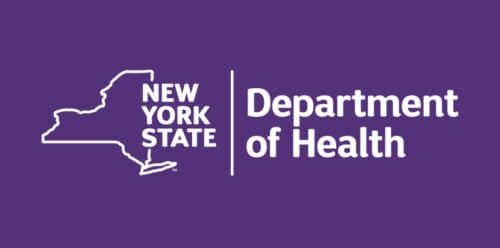Morelle-led letter calls NIH’s new indirect costs policy “harmful” and “counterproductive”

Congressman Joe Morelle led a bipartisan and bicameral group of New York Congressional colleagues in sending a letter to the National Institutes of Health (NIH) criticizing their decision to drastically reduce grant funding for “indirect costs.” The new cap of 15 percent would create significant shortfalls for NIH-sponsored research institutions and universities across the country, including some in Rochester.
“Indirect costs are a necessary component of federally funded research, ensuring that institutions can provide the necessary support for high-quality research without placing an undue financial burden on the researchers themselves,” wrote the Representatives and Senators in their letter. “We strongly urge you to rescind this decision and work with Members of Congress to ensure that any proposed changes lead to more jobs for the American people and more cutting-edge research that allows the United States to remain at the forefront of scientific progress and advancement.”
“NIH-sponsored research is a significant driver for innovation, job-creation, and scientific discovery for communities across the country,” added Congressman Joe Morelle. “By imposing these drastic cuts to grant funding, NIH is hamstringing thousands of researchers and making it more difficult for them to complete their potentially life-saving research. I’m grateful to my colleagues from New York State for joining me in this important effort, and I urge NIH to rescind this decision as soon as possible.”
“NIH funds lifesaving research for cancer treatment, heart disease, Alzheimer’s, Parkinson’s, Lyme disease and more at universities and research centers across New York. The Trump administration’s misguided cuts to this critical research also threaten hundreds of good-paying jobs across nearly every region of the state, from University at Buffalo, University at Rochester, Binghamton University, Upstate Medical, University at Albany, Cold Spring Harbor Laboratory, Stony Brook University, and more. These drastic cuts would set medical research back generations and hurt fellow Americans who benefit from the scientific advancements, treatments and new drugs. It would force layoffs across New York and stop the discoveries we need to cure diseases and keep our communities healthy – not to mention sustaining a robust economy,” said Senator Schumer. “I’m calling on the Trump administration and HHS to immediately reverse this terrible decision so we can keep the lights on for lifesaving medical research in New York and across the country.”
Kenneth E. Raske, President of the Greater New York Hospital Association, said: “Very simply, the ‘indirect’ costs being slashed are essential to the research enterprise. In New York alone, a 15% indirect cost cap will cut NIH grant funding to entities such as academic medical centers and cancer centers by a staggering $850 million. That will cripple their ability to conduct cutting-edge, lifesaving research for future generations.”
Jonathan Teyan, President and CEO of the Associated Medical Schools of New York, said: “The cuts to NIH facilities and administration costs would immediately and immeasurably harm academic medicine in New York State. Research at our medical schools supports 17,000 jobs and contributes more than $3.4 billion annually to the state’s economy. Moreover, the breakthroughs achieved by our scientists in understanding and treating disease improve lives. The Associated Medical Schools of New York (AMSNY) is pleased to see our representatives take action to reverse these cuts and protect biomedical research in New York.”
Sarah C. Mangelsdorf, President of the University of Rochester, said: “There are many ways to make government more efficient. Arbitrarily and abruptly cutting groundbreaking biomedical research that has led to countless breakthroughs and that saves, extends, and improves human lives is not one of them. Such a draconian cut to our research funding is detrimental to our efforts to improve health in the Rochester/Finger Lakes region and in the Southern Tier, threatens the future health of all Americans, and puts in jeopardy the nation’s position as the scientific and clinical research leader of the world. I speak for our University and all of the research universities throughout the country in thanking Rep. Morelle for his leadership in opposing this cut and for his tremendous and unwavering support to our Rochester scientists, doctors, and patients.”
Since taking office, the Trump Administration has issued a flurry of executive actions aimed at reshaping the federal government and cutting federal spending, including empowering Elon Musk and his DOGE team. On Saturday, February 8, NIH announced they would limit funding for “indirect costs” to 15 percent of grants. Indirect costs are designed to help compensate institutions for maintaining buildings and equipment, paying support staff, and managing other overhead expenses—funding necessary for conducting vital research.
New York State is the second leading recipient of NIH funding, with $3.6 billion in 2024. The medical schools collectively employ more than 62,000 people and contribute $3.4 billion to the NYS economy. In Rochester, the loss of funds for a high-level research institution like the University of Rochester would be an excess of $40 million.
Read the full text of the letter at https://tinyurl.com/38mwzf9b.
Provided information




